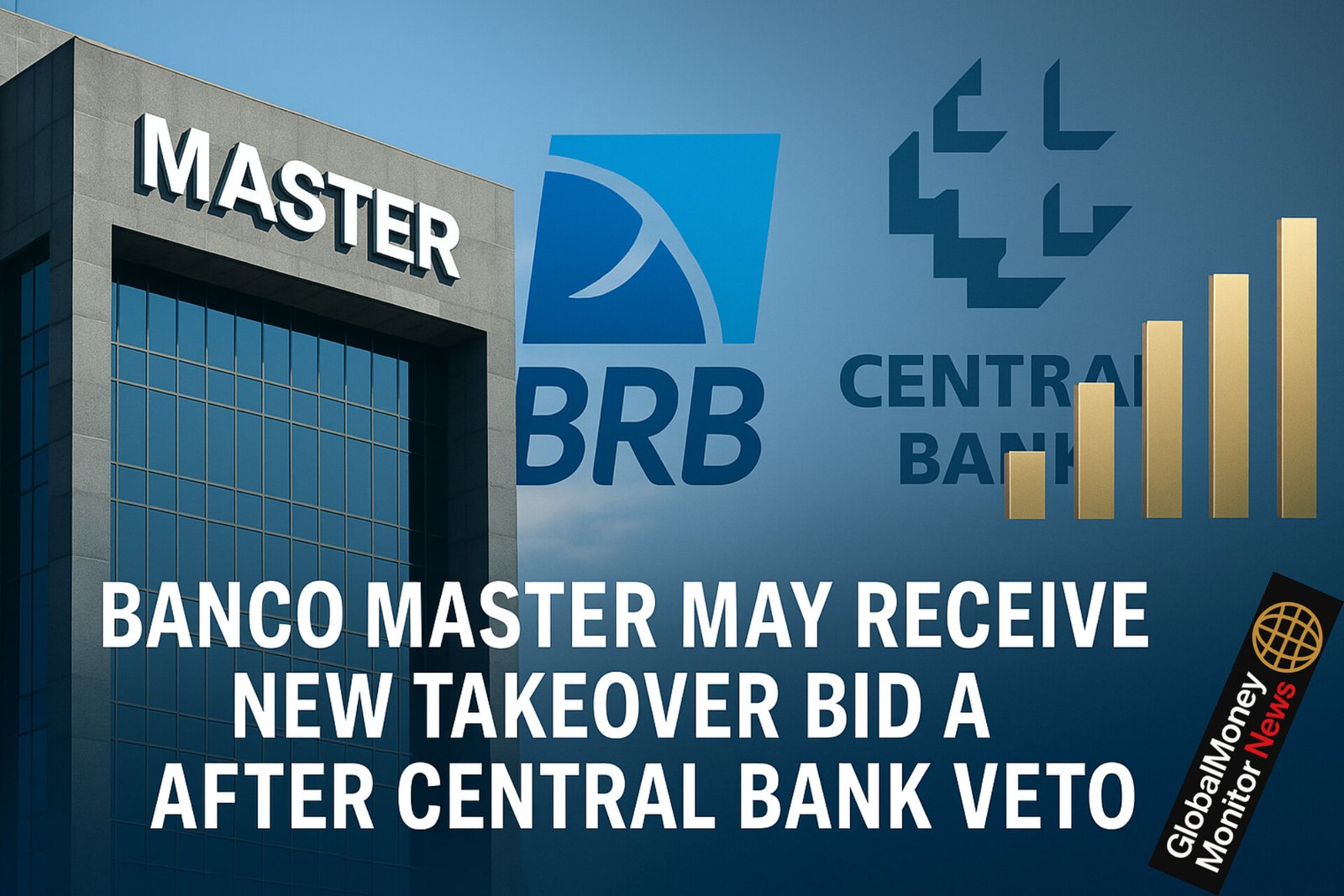A new stage in negotiations may reshape the Brazilian banking market
Even after the Central Bank of Brazil (BCB) rejected the initial takeover proposal, the Banco Master remains in the spotlight of major financial institutions. Sources close to the negotiations suggest that the Banco de Brasília (BRB) is evaluating a new structure to make the acquisition feasible. This move reignites the debate about market concentration, regulation, and expansion opportunities for medium-sized banks in Brazil.
What is at stake in Banco Master’s sale
Banco Master is considered one of the most relevant mid-sized financial institutions in Brazil, with strong operations in payroll loans, real estate financing, and asset management. Its possible sale has attracted market interest for several reasons:
- Portfolio expansion: the buyer gains immediate access to a diversified customer base.
- National presence: Banco Master has branches and infrastructure in strategic regions.
- Digital potential: the bank has invested in digital platforms, appealing to institutions looking to accelerate their digital transformation.
The Central Bank veto and its impacts
The Central Bank blocked the first acquisition proposal, citing risks of market concentration and potential regulatory conflicts. This decision not only froze negotiations but also opened the door for new suitors to rethink their strategies. For the BCB, transactions of this magnitude must ensure:
- Fair competition among medium and large banks.
- Consumer protection, preventing abusive practices.
- Financial sustainability of the acquiring institution.
The veto has been interpreted as a sign that the regulator is increasingly focused on balancing sector growth with healthy competition.
Why BRB emerges as a strong alternative
The Banco de Brasília (BRB) has been consolidating its position as an expanding player, especially after strategic partnerships in sports sponsorships and regional campaigns. As a public institution linked to the Federal District government, BRB seeks to expand its customer base beyond the Midwest region.
Acquiring Banco Master could be the key move, since it would:
- Expand its customer base on a national scale.
- Diversify revenue streams, balancing credit, investment, and digital banking.
- Strengthen institutional image, positioning BRB as a leading mid-sized bank.
Interest from other potential buyers
Although BRB is seen as the front-runner, the market speculates that other banks and funds may present alternative offers. Among the likely contenders are:
- Digital banks seeking established physical operations.
- International funds attracted by Brazil’s growing financial inclusion.
- Cooperative institutions, interested in scaling their national presence.
This competitive environment could drive Banco Master’s market value higher.
What investors should monitor
For investors, Banco Master’s sale process represents both opportunities and risks:
- Valuation of mid-sized banks’ stocks: if the deal moves forward, the market may price these institutions more positively.
- Expected synergies: the buyer could benefit from cost reduction and revenue growth.
- Regulatory risk: given the previous veto, any deal could be revised by the Central Bank.
In essence, investors must be patient and closely track regulatory signals and strategic moves.
Regulatory challenges ahead
Banco Master’s case highlights how the Central Bank is reinforcing its regulatory role. Beyond ensuring system stability, the BCB is focused on three crucial areas:
- Preventing monopolistic practices in the banking sector.
- Ensuring financial security in large-scale transactions.
- Protecting consumers in a rapidly digitizing market.
This level of scrutiny may slow down processes but guarantees long-term stability.
Digital expansion as a key asset
One of Banco Master’s main attractions is its digital platform. The Brazilian banking sector has seen the rise of fintechs and digital banks, forcing mid-sized institutions to innovate.
READ MORE ABOUT THIS TOPIC
Brazilian Stock Market Hits All-Time High on US Rate Cut Bets; Dollar Falls
Dollar Drops Sharply and Strengthens the Real: Brazilians Celebrate
An acquisition by BRB could accelerate this transition, creating new digital products and enhancing competitiveness against giants like Itaú, Bradesco, and Banco do Brasil.
How the market perceives the move
Banking analysts suggest that Banco Master’s sale could become a watershed moment. Depending on the outcome, we could see:
- Strengthening of mid-sized banks, enabling them to compete more directly with large players.
- Greater attraction of foreign investors, eager to take part in strategic deals in Brazil.
- Changes in regulation, with the Central Bank becoming even more active in supervising mergers and acquisitions.
The consumer perspective
For Banco Master’s clients, the process brings both expectations and uncertainties. Potential impacts include:
- New products and services, if the acquisition succeeds.
- Enhanced digital offerings, improving access to banking solutions.
- Possible changes in fees and interest rates, depending on the acquiring institution’s policies.
Transparent communication with customers will be critical to avoid reputational risks.
The role of competition in Brazil’s banking sector
Brazil is still considered a highly concentrated banking market, dominated by five major banks holding most of the assets. In this context, operations like Banco Master’s sale gain relevance, as they could shift the competitive balance.
The rise of new buyers or the strengthening of mid-sized banks could bring:
- More competitive interest rates.
- Better credit conditions for consumers.
- Greater innovation in digital banking services.
The sale of Banco Master is far from decided, but its outcome will directly impact the future of Brazil’s banking sector. The Banco de Brasília’s interest in submitting a new proposal, even after the Central Bank’s veto, shows the appetite for expansion remains strong.
For investors, clients, and regulators, this is a moment of heightened attention. The case exemplifies the delicate balance between growth and regulation in a sector vital to Brazil’s economy.

